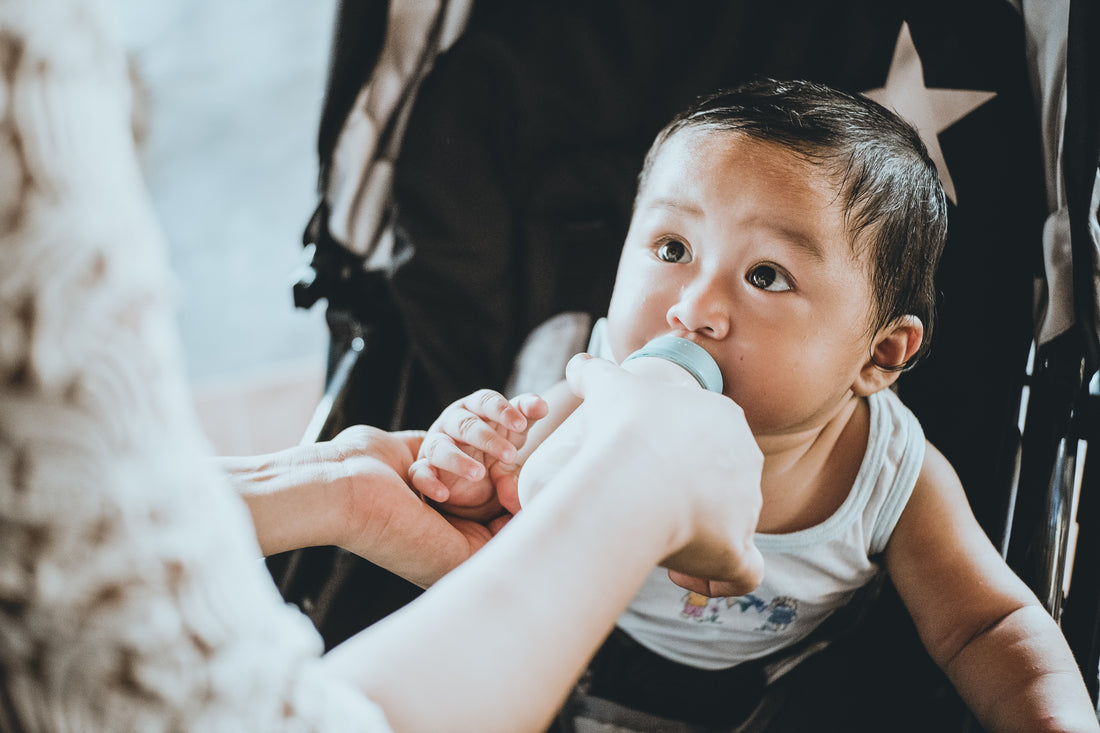
Bottle-Fed Babies Ingest Millions of Microplastic Particles Every Day
By Romero Halloway

The story of plastics and their baleful impact on both the environment and human health continues to get worse. A study published in October found that babies are imbibing millions of microplastics and nanoplastics due to the ubiquitous presence of polypropylene, a common plastic, in baby bottles.
A group of researchers based at Trinity College in Dublin, Ireland found that bottle-fed infants ingested 1.6 million microplastic particles every day for the first year of their lives.
The researchers followed the World Health Organization recommendations for sterilizing plastic baby bottles in boiling water and for sufficiently warming formula in bottles to feed babies. They discovered that in this process the plastic bottles, particularly those composed of polypropylene, shed microplastic particles.
“What's happening is that there's an interaction between the [plastic] polymer and the water," said John Boland, a chemist at Trinity College. "It's almost like a flaking of the surface of the actual plastic itself."
The researchers tested the bottles over a 21-day period and found that each bottle shed 1.3 to 16.2 million microplastics per liter.
While the researchers are cautioning parents to remain calm, the truth is that very little is known about the impact of polypropylene microplastic ingestion, meaning further research is needed to identify the specific health impact.
In the meantime, it is important that parents know 82% of the baby bottle market consists of products composed almost entirely of polypropylene.
“It turns out that a small number of manufacturers covered about 70 percent of the market,” Boland told The Scientist in October.
Boland characterized the findings as astonishing.
“A study last year by the World Health Organization estimated adults would consume between 300 and 600 microplastics a day – our average values were on the order of a million or millions,” he told The Guardian.
Here at VITRI, we recognize the pervasive use of plastics on an everyday basis is not only bad for the environment, as beaches are strewn with plastic refuse of every variety and floating piles of detritus mar our oceans, but human health outcomes are impacted as well.
Even if the microplastics in the study are not immediately pernicious, infants should not be ingesting millions of plastic particles every day.
“I’ve already gotten rid of all those [food] containers I used to use and if I had young children I would modify how I prepare the bottles,” Boland said. “The message is the precautionary principle.”
This precautionary principle motivates us to utilize our background in material science and product design to help spur a transition away from plastics to materials more amenable to ecological and human health.
Our team is committed to making durable and sophisticated products that rival the convenience of plastics without the public health burden. We believe technology and design innovations can revolutionize how Americans and the world consume products in concert with public health. Please stay tuned to our website, blog, and upcoming Kickstarter page as we unveil a product fully capable of providing the convenience and sustainability that will consign the concept of disposable plastics to the garbage heap of history.
Editor's Note: This post has been updated to reflect our rebranding to VITRI.
